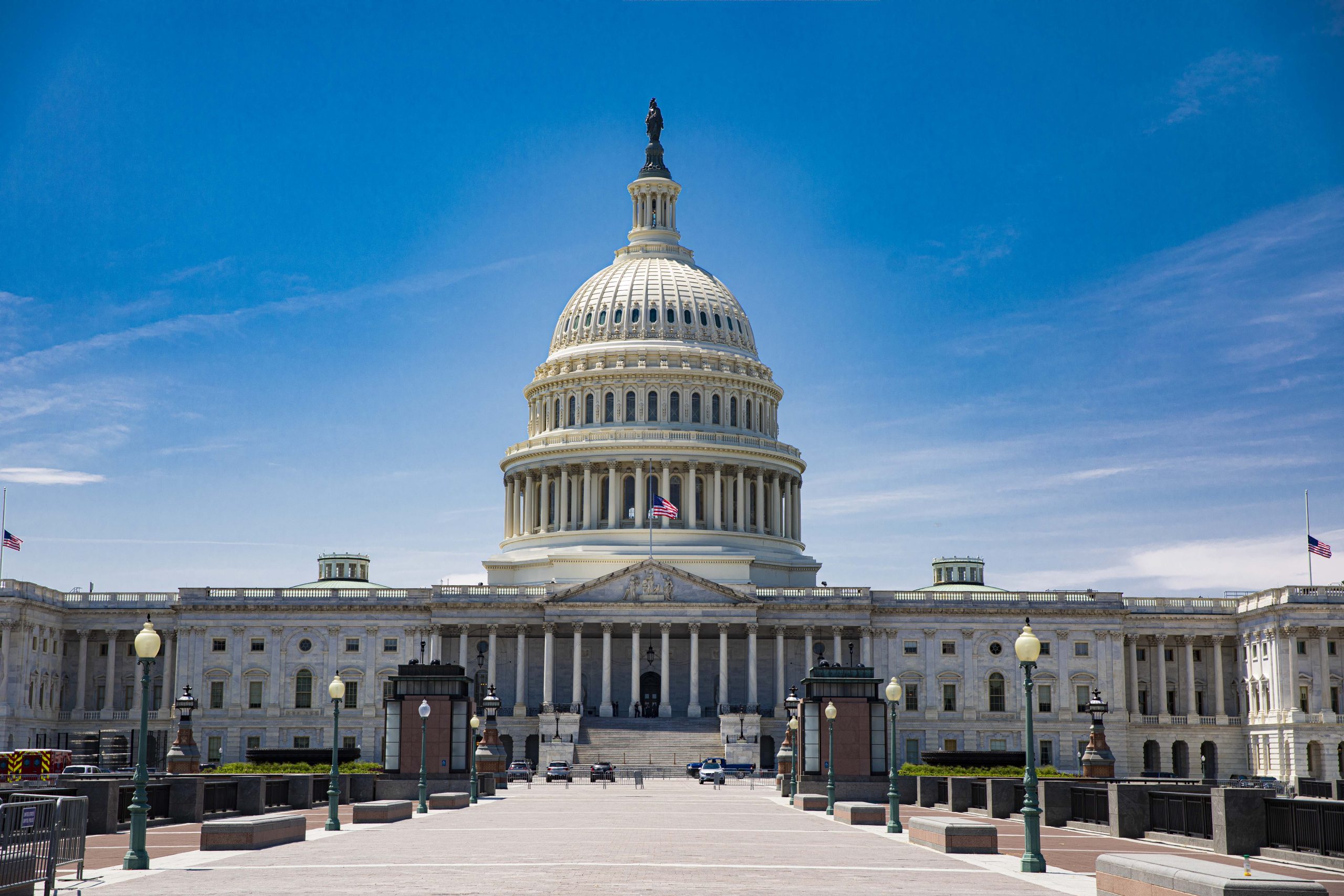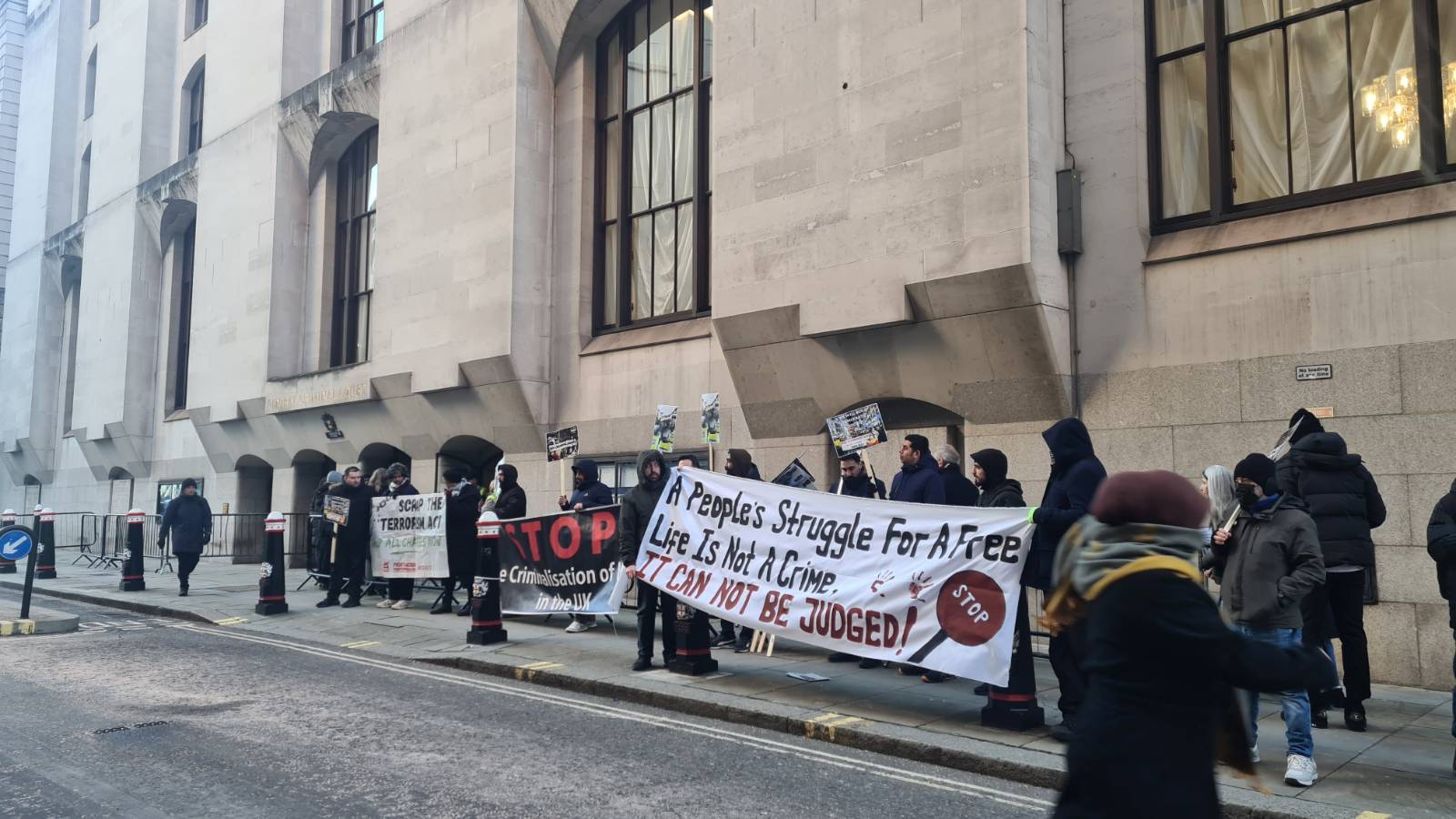Sanctions Repeal Debate Showcases Divisions in U.S. Syria Policy

U.S. Capitol east front in 2020 by Senate Democrats, is licensed under CC BY 2.0 (Original source: Flickr).
A debate over whether to repeal U.S. sanctions on Syria has exposed sharp divisions in Washington’s approach to Damascus.
When Ahmed al-Sharaa fought U.S. forces with al-Qaeda in Iraq and Donald Trump fired America’s elite on Celebrity Apprentice, neither man likely imagined that they would one day meet as heads of state. But now, U.S. President Trump and Syrian transitional president al-Sharaa did shake hands in May of this year, and leading their public agenda was not terrorism or security issues, but business. Al Sharaa wants to build a state and consolidate his power as its ruler; it is an impossible task if he cannot deliver basic economic security. Trump and his inner circle see the chance to at once flip a former Russian ally to the U.S. fold and expand their network of regional economic interests as too valuable to pass up.
This sanctions regime likely contributed to the crumbling of the Syrian state, which allowed al-Sharaa to take power. It also devastated civilian lives and livelihoods to a degree that may take years to reverse.
To realize this shared vision, the U.S. announced that it would offer Syria one of its top diplomatic priorities –sanctions relief– without conditions. The U.S. first imposed sanctions on Syria in 1979. Further economic isolation followed the outbreak of civil war in 2011. This sanctions regime likely contributed to the crumbling of the Syrian state, which allowed al-Sharaa to take power. It also devastated civilian lives and livelihoods to a degree that may take years to reverse.
Trump has already lifted most of the restrictions that are under his control. However, not all U.S. sanctions on Syria were imposed by the executive branch. The Caesar Civilian Protection Act of 2019 imposes sanctions on a variety of Syrian state structures, entities, and individuals that can only be lifted by Congress. The president has the authority to waive these sanctions for 180 days at a time, which Trump did in May of this year.
Since then, legislators have been debating if, when, and how the Caesar Act could be repealed permanently. The dispute outlines the challenges before the STG in its efforts to consolidate its new improved ties with the U.S., the range of viewpoints within the U.S. government on the new Syrian state, and the reality of economic sanctions as a tool of war and peace.
Unconditional Repeal
In June, South Carolina Congressman Joe Wilson introduced H.B. 3941, a bill to repeal the Caesar Act without conditions, in the House of Representatives. Wilson, a Republican, is known for his close ties to Turkey and the Syrian-American community and outspoken opposition to Bashar al-Assad’s regime.
H.R. 3941 now has 16 other co-sponsors. 11 are Democrats, including both moderates and progressives, and 5 are Republicans. Congressman Abe Hamadeh, a Republican from Arizona who has Syrian Druze and Kurdish roots, initially co-sponsored the bill but withdrew support amid violence in Suwayda. This bill has been referred to the House Foreign Affairs Committee, the House Judiciary Committee, and the House Financial Services Committee, but has not yet received a hearing – the next step required for it to advance as legislation.
Days later, New Hampshire Senator Jeanne Shaheen, a Democrat, and Kentucky Senator Rand Paul, a Republican, introduced corresponding legislation in the Senate. Their bill has no other cosponsors. Shaheen is the Ranking Member of the Senate Foreign Relations Committee. She visited SDF-held Syria prior to the fall of the regime and was a strong proponent of sanctions on Assad. Paul, a member of the same committee, had been broadly critical of U.S. intervention in Syria throughout the war.
Supporters of full repeal are ideologically and politically diverse. The Senate and House press releases announcing the bills both gave approving nods to U.S. Syria envoy and ambassador to Turkey Tom Barrack, a rare bipartisan endorsement of Trump administration policy. Wilson was quoted in his press release, highlighting the importance of sanctions relief for investment in Syria, echoing Barrack and Trump’s priorities.
They have also begun to admit the devastation that sanctions have brought to Syria’s population. Shaheen and Paul both commented on the civilian cost of sanctions in the press release announcing their repeal bill. These impacts were largely swept under the rug when Assad was in power.
Both the transitional government and Syrian-American community organizations have prioritized sanctions relief. The response from notable members of Congress shows that they have earned some friends and influence. In September, Shaheen led a bipartisan group of senators, including Armed Services Committee Chair Roger Wicker, that met with Syrian foreign minister Asaad al-Shaibani to discuss the issue. In a readout, they warned that “sanctions are prohibiting urgently needed investment in Syria’s economy.”
Assurances Needed
In July, Congressman Mike Lawler, a Republican from New York, introduced legislation that would base the removal of Caesar Act sanctions on the transitional government’s adherence to a set of conditions, including an end to attacks on civilians, the protection of religious minorities, and unhindered humanitarian aid access.
This bill has received a committee hearing. It passed out of the Financial Services Committee by a vote of 31-23. Support for conditional repeal is also bipartisan. Semafor reported that “two centrist Democrats — Reps. Brad Sherman of California and Josh Gottheimer of New Jersey helped Republicans advance the Lawler plan. Trump-friendly Rep. Byron Donalds, R-Fla., joined all other Democrats in voting ‘no.'”
On the Senate side, South Carolina Senator Lindsey Graham, a Republican, and Maryland Senator Chris Van Hollen, a Democrat, have introduced an amendment that would even stricter conditions on sanctions relief than the Lawler bill does.
Proponents of conditional sanctions relief are motivated by concern about the transitional government’s treatment of religious and ethnic minorities and ability to align with U.S. priorities in the Middle East — like the fight against ISIS and wider regional peace and stability.
The NDAA Debate
Both camps have used the National Defense Authorization Act, or NDAA, which funds the U.S. Department of Defense and is virtually guaranteed to become law, to advance their preferred policy. An unconditional repeal amendment made it into the version of the NDAA that is currently in the Senate. A corresponding amendment was filed in the House, again by Rep. Joe Wilson, but was not adopted.
The Senate and House bills must be combined into one text and passed by both chambers before being signed into law. It is unclear whether the sanctions repeal provision will survive this process. Syrian-American organizations supportive of the transitional government have promised to lobby for it.
What’s Next
Congress is unlikely to move forward on any foreign policy legislation in the short term. Disputes between the Republicans and Democrats over the federal budget have resulted in a government shutdown. Reaching agreement on reopening the government will take precedence over any other legislative issue.
The Trump administration will continue to prioritize unconditional sanctions relief. It may engage in any NDAA debates that do resume after the shutdown to promote repeal provisions on the House side.
The prospect of sanctions relief could be used as leverage to disincentivize further conflict in the northeast.
In Syria, tensions are rising as the year-end deadline for the integration of the Syrian Democratic Forces (SDF) with the new state approaches. Clashes broke out late Monday night in Sheikh Maqsoud, the Kurdish-held neighborhood of Aleppo, after STG forces blocked all roads in and out of the area. The transitional government’s July escalation against the Druze community and resulting sectarian clashes chilled support for Damascus in the U.S. The prospect of sanctions relief could be used as leverage to disincentivize further conflict in the northeast.
Syria’s relations with neighboring countries could also impact Congressional viewpoints. Some legislators have suggested that progress towards a Syria-Israel peace agreement could make sanctions relief more feasible.
Meghan Bodette
Meghan Bodette is the Director of Research at the Kurdish Peace Institute. She holds a Bachelor of Science in Foreign Service from Georgetown University, where she concentrated in international law, institutions, and ethics. Her research focuses on Kurdish issues, with a focus on human rights, peace and democracy; women’s rights; and Turkey’s cross-border military operations in Iraqi Kurdistan and northern Syria. She has briefed officials from governments and international institutions on her findings, and has been interviewed by national media including NPR and NowThis for her expertise.



